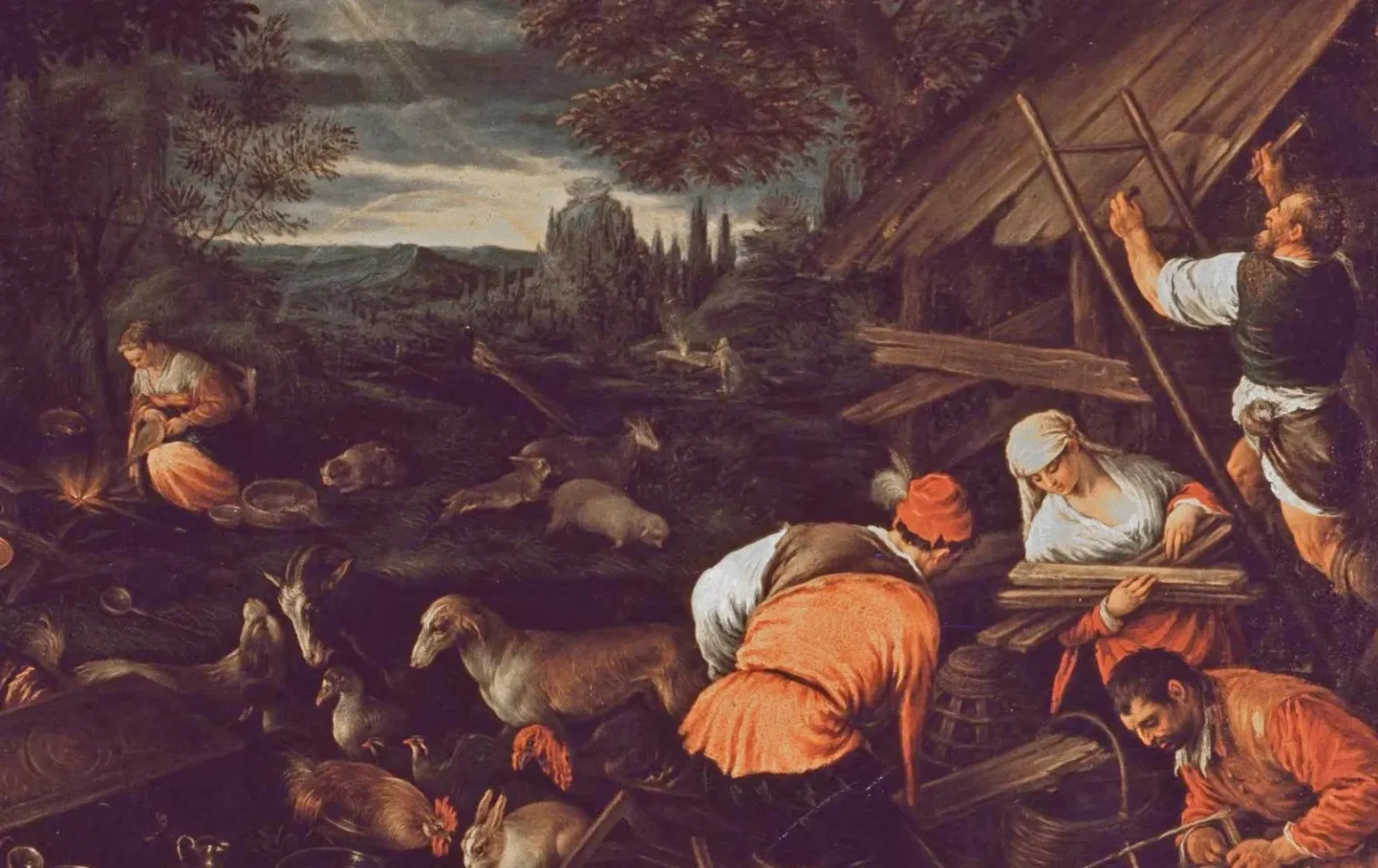
Noah, a pivotal figure in Biblical history, is renowned for constructing the ark that ensured survival during the Great Flood. His life, deeply rooted in the Book of Genesis within the Hebrew Bible and the Christian Old Testament, symbolizes faith and obedience. The exact dates of his birth and death are not recorded, but his lifespan is described as 950 years, a testament to the longevity of pre-Flood generations. Noah’s story, extending beyond religious texts, has had a profound impact on various cultural and theological interpretations.
Early Life and Divine Command
Noah’s early life, leading up to his divine commission, is crucial in understanding his character. Born as the tenth-generation descendant of Adam, Noah is portrayed as a righteous and blameless man among his contemporaries. His story gains momentum when God, observing the widespread corruption and violence on Earth, decides to cleanse it with a catastrophic flood. Entrusted with a monumental task, Noah is commanded to build an ark to preserve his family and a pair of every animal species.
Construction of the Ark and the Onset of the Flood
The construction of the ark is a testament to Noah’s unwavering faith and diligence. The ark, a massive wooden vessel, was built to specific divine specifications. Its purpose was to safeguard Noah’s family, along with various animal species, from the impending deluge. As the floodwaters began to rise, marking a pivotal moment in Biblical history, Noah’s ark stood as a symbol of salvation amidst divine judgment.
The Aftermath and Covenant
Post-Flood, Noah’s life took on new significance. As the waters receded, the ark rested on the mountains of Ararat, and a new covenant was established between God and humanity. This covenant, marked by the rainbow, signified God’s promise never to destroy the earth with a flood again. Noah’s role in this covenant highlights his importance in the narrative of redemption and divine grace.
Noah’s story, from his call to build the ark to the establishment of the post-Flood covenant, is a powerful narrative of faith, obedience, and redemption. It serves as a cornerstone in the theological and moral teachings of various religions and continues to inspire interpretations across different cultures and eras.
References
- JSTOR (Accessed 27 December 2023). “Theological Interpretations of the Story of Noah.”
- LiveScience (Accessed 27 December 2023). “Examining the Historical Validity of Noah’s Flood.”
- Matthews, V. (2005). “Mankind’s Survival: The Story of Noah.” New York: HarperCollins.
- National Geographic (Accessed 27 December 2023). “Why Noah’s Ark Will Never Be Found.”
- Smith, H. (2003). “Biblical Tales and Archaeological Reality.” Princeton: Princeton University Press.
